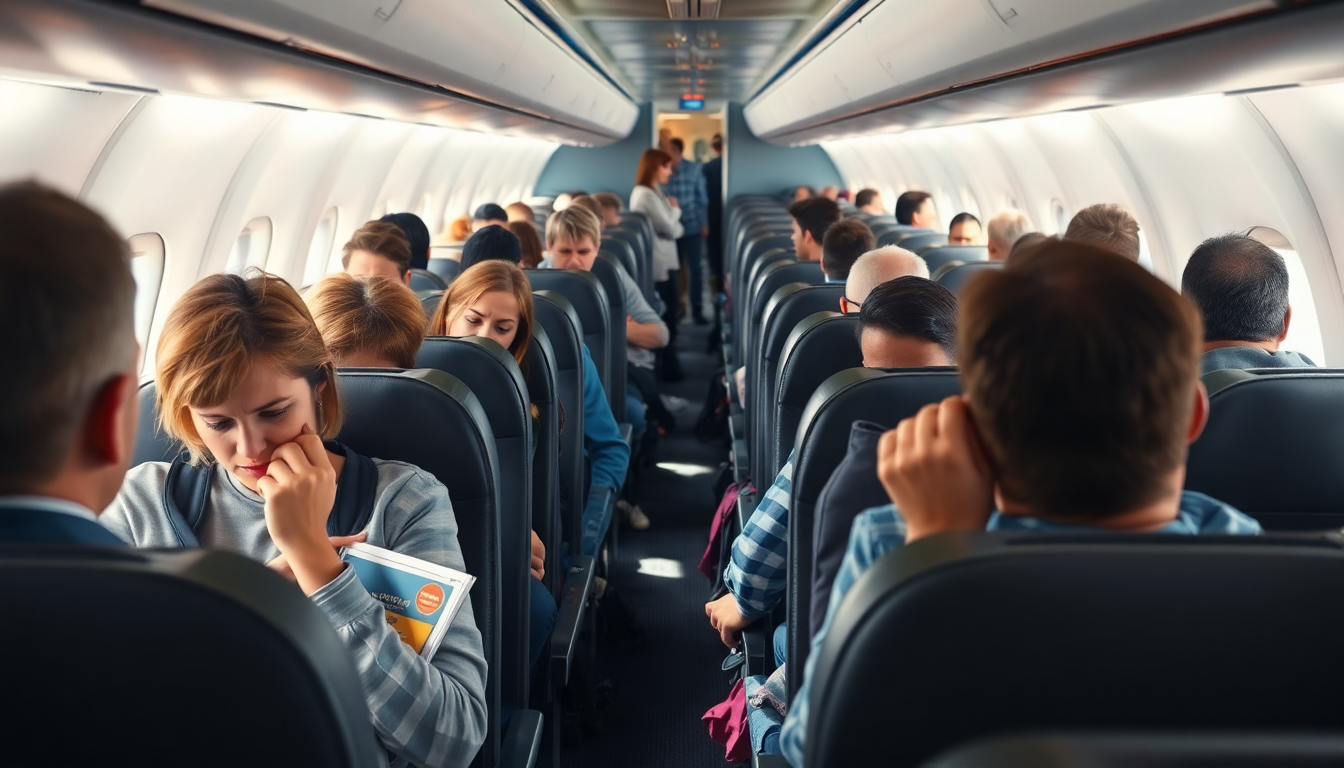Table of Contents
The recent legal action taken by a Southwest Airlines passenger has sparked a nationwide conversation about the safety implications of the airline’s unassigned seating policy. Could this incident be a turning point for how airlines prioritize passenger security? It raises not just questions about this particular case but also broader issues regarding industry standards and the responsibilities of airlines to keep their customers safe. At the heart of this situation is Livia Rombola, who claims that the airline’s seating arrangements played a role in a violent encounter with another passenger, prompting her to seek justice through the courts.
Overview of the Incident
Picture this: On a Southwest flight bound for Kansas City, Missouri, Livia Rombola became the target of an unprovoked attack by a fellow passenger named Leanna Perry. This chaotic altercation, which was caught on video and quickly went viral, shows Perry verbally assaulting Rombola and even grabbing her hair. Eyewitnesses described the scene as pandemonium, with other passengers and flight attendants stepping in to intervene. It was later reported that Perry appeared to be intoxicated. Now, this disturbing incident has escalated into a lawsuit filed in New York State Supreme Court, where Rombola alleges that Southwest’s policies directly contributed to the attack.
Rombola’s lawsuit not only brings to light the physical injuries she suffered during the incident but also the emotional and psychological fallout from being thrust into the public eye due to the viral nature of the footage. Imagine the impact of sudden notoriety; she claims it led to severe embarrassment and lasting damage to her reputation. At the crux of her allegations against Southwest Airlines is the assertion that their unassigned seating policy fostered an environment where conflict could easily arise, ultimately failing to uphold the expected standards of passenger safety.
The Policies Under Scrutiny
So, what’s the deal with Southwest’s unassigned seating policy? This controversial approach allows travelers to choose their seats on a first-come, first-served basis, which stands in stark contrast to the more traditional seating assignments most airlines use. Critics argue that this practice can lead to potential confrontations among passengers. According to the lawsuit, while Southwest’s method prioritizes operational efficiency and cost savings, it seemingly neglects the safety of its passengers, exposing them to unnecessary risks.
Rombola’s attorney emphasizes that this longstanding policy played a significant role in the unfortunate incident. The lawsuit argues that Southwest’s inaction regarding seat assignments was a key factor that led to the confrontational situation that unfolded during the flight. Interestingly, the airline has announced plans to phase out this contentious seating arrangement by January 2026, indicating a potential shift that may enhance passenger safety in the future. Could this be a sign of change in the airline industry?
Legal and Social Implications
The legal implications of this case extend far beyond Rombola’s individual complaint. It emphasizes a growing concern around passenger safety in the airline industry, particularly as airlines strive to balance cost-effectiveness with the need for secure travel environments. Could this incident prompt a reevaluation of seating policies across the board? It’s possible that airlines may adopt more structured seating assignments to reduce the risk of similar occurrences in the future.
Furthermore, we can’t overlook the psychological impact on victims of such incidents. Rombola’s claims of emotional distress and the repercussions of public exposure highlight a broader issue regarding how passengers are treated during and after traumatic experiences. The court’s decision could set a significant precedent for how airlines manage passenger interactions and incidents moving forward.
As this legal saga unfolds, it remains to be seen how Southwest Airlines will address not only Rombola’s accusations but also the public’s growing concerns about safety and airline policies. This case serves as a critical reminder of the importance of passenger protection in the ever-evolving landscape of air travel. Will this incident lead to real change in the industry? Only time will tell.


